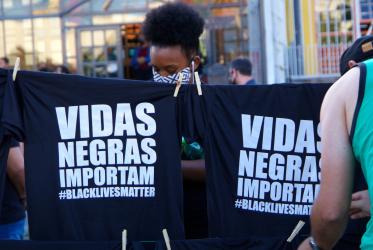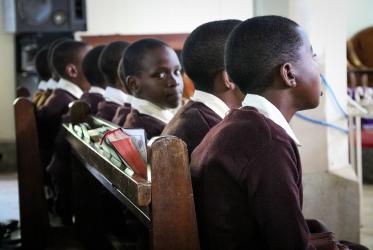Displaying 61 - 80 of 97
27 September 2022
Répondre aux besoins humanitaires en Ukraine
27 September 2022
Assembly workshop looked toward ending AIDS epidemic by 2030
19 September 2022
Ukraine: Responding to humanitarian need
08 September 2022
Called to Transformation - Ecumenical Diakonia
09 June 2022
Walk the Talk / Dalle parole ai fatti
Tabella di marcia per chiese e comunità per un’economia di vita e per la giustizia ecologica.
02 February 2022
De las palabras a la acción
Conjunto de herramientas para acompañar la «Hoja de ruta para las congregaciones, las comunidades y las iglesias para una economía de vida y una justicia ecológica»
22 December 2021
Webinar explores intersection of debt cancellation and anti-racism
09 December 2021
ZacTax Toolkit
24 November 2021
African church leaders train in leadership, diakonia and development
12 November 2021















